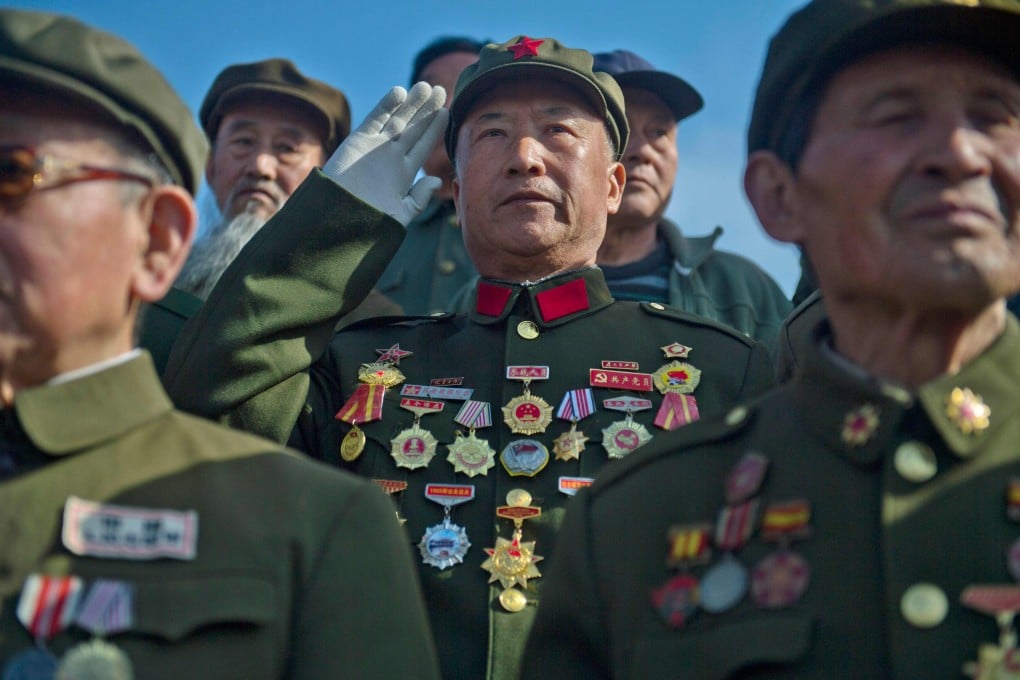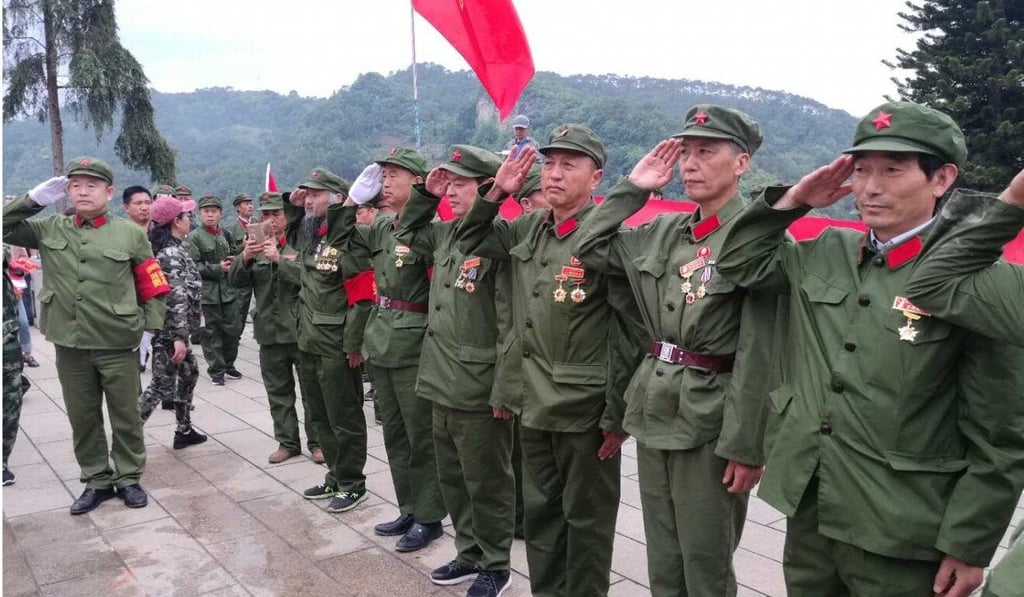Advertisement
China passes law to provide more support for former military personnel
- Legislation sets out rules on living allowances, jobs, vocational training, educational opportunities and health care services for veterans
- Being in the military should be seen as ‘a profession respected by the whole of society’, says chairman of the NPC, which approved the new law
Reading Time:2 minutes
Why you can trust SCMP

China’s top legislative body on Wednesday passed a new law aimed at providing better support for the country’s 57 million military veterans.
The legislation, which was adopted by the Standing Committee of the National People’s Congress (NPC) after a two-day meeting and will go into effect in January, sets out rules on living allowances, jobs, vocational training, educational opportunities and health care services for veterans, Xinhua reported.
Li Zhanshu, chairman of the NPC, was quoted as saying that efforts should be made to publicise the new law.
Advertisement
“[We should] make the military a profession to be respected by the whole of society, and build the foundation for strengthening the army,” he said.

Advertisement
Under the new law, businesses that employ former soldiers will be given tax breaks, while local governments will be responsible for providing job training to veterans so they can find alternative employment and support themselves.
According to official figures, China has about 57 million veterans and the number is set to grow as military leaders seek to transform the People’s Liberation Army (PLA) into a modern fighting force through streamlining and the adoption of new technologies.
Advertisement
Select Voice
Select Speed
1.00x